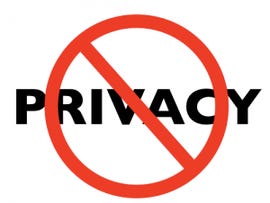Online privacy includes the right or order of individual privacy concerning the putting away, repurposing, arrangement to outsiders, and showing of data relating to oneself utilizing the Internet. Web privacy is a subset of information privacy. Privacy concerns have been verbalized from the beginnings of huge scope PC sharing. protect online privacy can involve either recognizable data or non-PII data, such as a web page guest’s conduct on a site. PII alludes to any data that can be utilized to distinguish a person. For instance, age and actual location alone could recognize who an individual is without unequivocally unveiling their name, as these two components are adequately novel to distinguish a particular individual normally.
Different types of PII may before long incorporate GPS following information utilized by applications, as the everyday drive and routine data can be sufficient to distinguish a person. It has been proposed that the allure of online administrations is to communicated individual data deliberately. Then again, in his paper, The Value of Privacy, security master Bruce Schneier says, Privacy shields us from maltreatments by people with significant influence, regardless of whether we’re doing nothing incorrectly at the hour of reconnaissance.
Levels of privacy:

1) Web and computerized privacy are seen uniquely in contrast to conventional assumptions for privacy. Web privacy is essentially worried about securing client data. Law Professor Jerry Kang clarifies that the term privacy communicates space, choice, and data. As far as space, people have an assumption that their actual spaces not be meddled with.
2) Privacy inside the domain of choice is best represented by the milestone case Roe v. Swim. In conclusion, data privacy is concerning the assortment of client data from an assortment of sources, which produces extraordinary conversation.
3) In the United States, the 1997 Information Infrastructure Task Force made under President Clinton characterized data privacy as a person’s case to control the terms under which individual data recognizable to the individual is procured, revealed, and utilized.
4) Toward the finish of the 1990s, with the ascent of the web, unmistakably governments, organizations, and different associations would have to keep new principles to secure people’s privacy.
Anonymity on the internet :
- Individuals with just a relaxed worry for Internet protection need not accomplish all out namelessness. Web clients may ensure their protection through the controlled revelation of individual data. The disclosure of IP addresses, non-by and by recognizable profiling, and comparable data may become worthy compromises for the accommodation that clients could some way or another lose utilizing the workarounds expected to stifle such subtleties thoroughly.
- Then again, a few groups want a lot more grounded protection. All things considered, they may attempt to accomplish Internet namelessness to guarantee the security utilization of the Internet without enabling any outsiders to connect the Internet exercises to by and by recognizable data of the Internet client. To keep their data hidden, individuals should be cautious with what they submit and take a gander at it on the web.
Role of a government organization:
A few administrative associations secure a person’s protection and namelessness on the Internet, to a point. Forestalling or restricting the utilization of Social Security numbers internet, being careful and conscious of messages including spam messages, being aware of individual monetary subtleties, making and overseeing solid passwords, and shrewd web-perusing practices are suggested, among others.
